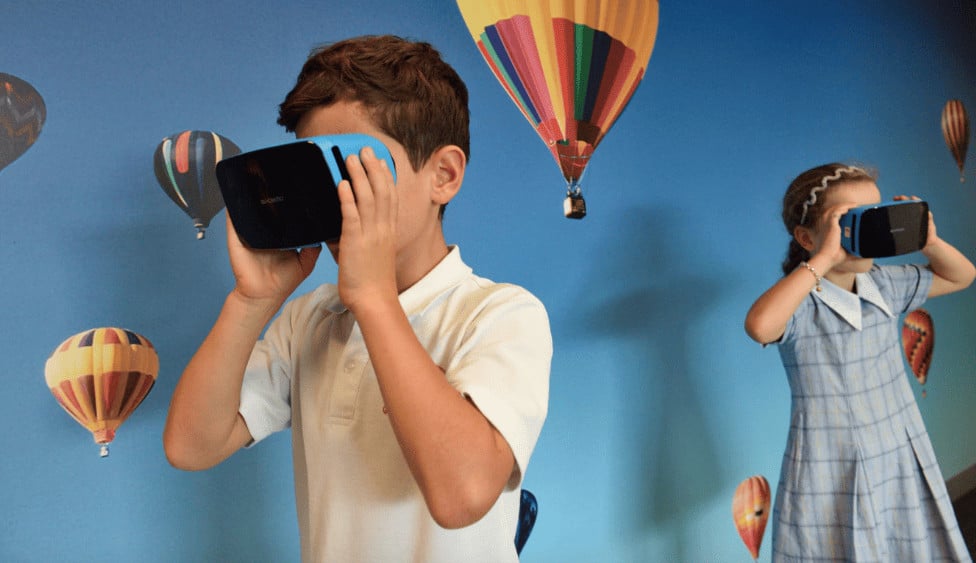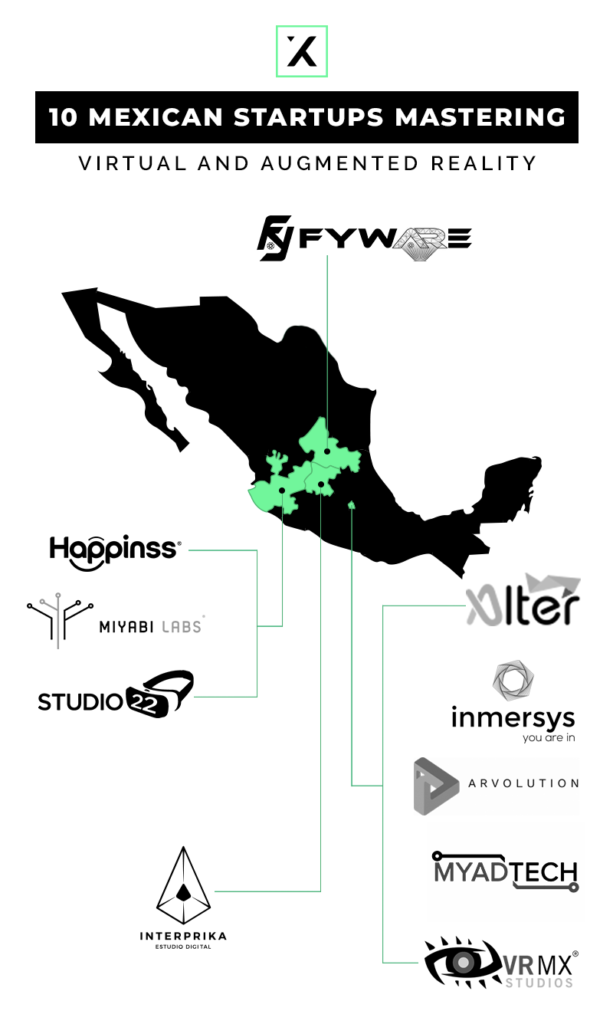
Por Jacob Atkins
July 17, 2019
Contxto – After attending the Inteligencia Mexico Conference (IMC) in Mexico City last month where AI, Big Data and IoT were likened to the “fourth industrial revolution,” my biggest takeaway was that practically any industry yields the potential to implement virtual or augmented reality (VR/AR) in Mexico.
Founders across Latin America are continuously coming up with clever ways to incorporate these technologies into their models. The following Mexican startups don’t prove anything otherwise. Health, education, warehouse management and real estate are only a few sectors using virtual technology to their competitive advantage.

As featured in our recent startup profile, Happinss combats work-related stress and mental illness with its VR solutions. One product uses music therapy and VR goggles to transport users to faraway lands.
Another tries to foster mindfulness in the workplace with metrics to accompany the process. Happinss validates its products with users in order to measure the biological benefits of VR therapy over time.
Eight years of experience has allowed Inmersys to develop cutting-edge apps with VR/AR strategies. Much of this revolves around video game development technologies to achieve a “mixed reality” sensation for users.
Masterfully combining AR and VR, as well as big data and IoT, Arvolution aids warehouses in maximizing productivity. While RFIDs monitors team efficiency, its Computer Vision industry 4.0 camera device can identify products, detect broken or defective parts, and even trigger alerts or actions for certain operations.
Related article: VR Parallax seeks funds to bring Mexico closer to Industry 4.0
VR treatment for Attention Deficit Hyperactivity Disorder (ADHD) exists thanks to Miyabi Labs’ innovations. Incubated by Balero and GSVlanbs, the startup specifically works with ADHD children and their families for an alternative yet dynamic treatment method.
Web and mobile applications, virtual tours, 3D modeling and personal services are what Interprika ensures to partners. Tikasa is one of the startup’s big-name items, allowing users to walk through virtual spaces and intricate showrooms.
Elements are programmed specifically to interact with the real world, making one’s home or office a virtual playground of sorts. Early-stage projects, in particular, can benefit from this type of service.
Alter connects the publishing and advertising worlds to virtual reality with its modern services. This startup seeks to trigger stronger engagement between partnering companies and their advertising consumers. Figures from the Alter’s website show high-retention rates from successful ad campaigns.
Since 2015, VRMX has been offering 360 and interactive video production services in addition to VR equipment rentals to partners. Videos can either be in 2k or 4k resolution and compatible on YouTube or 360 video players. Developers also produce Android or iOS apps as well as cardboard viewers.
VR industrial training, extended display, real estate VR immersion and AR advertising are some of Fyware’s specialties. UniVRse is a reputable item from the startup’s portfolio.
It uses HTC VIVE and Oculus Go products to educate people about the solar system in a futuristic way. The industrial training programs also help companies reduce training costs while ensuring that employees properly learn how to handle machinery via VR modules.
This startup turns clients’ weddings, business videos, dance performances or concerts into a VR experience. The service even includes on-site recording and post-production.
Besides this, Studio 22 also provide services personalized textures for 3D renderings, virtual real estate exhibitions, as well as fully-equipped starter kits that can be bought or rented.
Not only is Myadtech a company using agile but also lean methodology in its VR, AR and IoT services. It is capable of developing software, applications, websites and video games for partners.
-JA
November 20, 2024
October 29, 2024